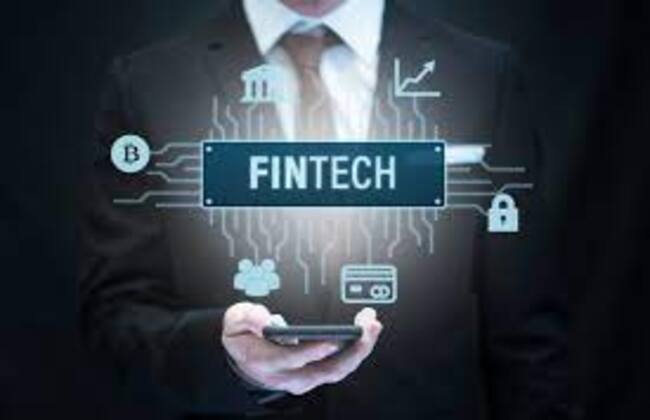
One hundred and fifty-four years ago, when transatlantic cable was successfully installed, it was basically the beginning of financial technology (fintech). From 1800 to 1913, it was known as Fintech 1.0. The ATM machine was installed at Barclays Bank in England in 1986, a period known as the FinTech 2.0 period. The basic infrastructural aspect of financial services is the combination of money and technology. As a result of the supply and use of new technologies, the idea of improving financial processes was born. Companies are committed to enhancing customer service by using computers, specialized software and algorithms used in growing smartphones, a core part of Fintech.
Bangladesh’s banking sector is becoming increasingly competitive. Almost all the banks are constantly competing with other banks. Even different branches of the same bank are competing with each other. In this competition for survival, the quality of service, customer satisfaction has found a place, and so has the use of fintech. Private banks are far ahead in using fintech. While e-banking services (ATMs, credit cards, internet banking, mobile banking, etc.) are able to attract the attention of different customers, the country’s state-owned banks are far behind. As a result, those banks are far behind in attracting the attention of new customers. In many cases, even the old customers are not getting the expected service, so they are thinking of moving their accounts elsewhere. In order to survive in this situation, the use of Fintech in all government banks like other private banks needs to be implemented very fast, so that banking services can be delivered to the marginalized people quickly. However, the question remains whether customers in all regions of our country are ready to receive this service? It is very promising that the use of information technology in rural and urban branches and head offices of government banks has increased significantly in the past. Where there is an opportunity to transact online from one branch to another. In addition, debit / credit card and ATM (automated teller machine) services are available in various banks, pause (point of sale) facility is available, SMS (short message service) service is available on mobile and recently dual currency Visa credit card service has been introduced to a limited extent. Done. However, many government banks have not yet launched or are in the process of launching ‘Internet Banking’ and ‘Mobile Apps Based Banking’ services.
In the age of financial technology, ‘Mobile Apps Based Banking’ means that the activities of a bank are done by a mobile app. Basically, Fintech is a version of this. A customer has to install the mobile apps of the bank he is using on his own mobile phone. After that the customer will be connected with the concerned bank through that mobile app through internet connection and will be able to receive various banking services including mobile apps. The biggest advantage of Fintech is that the customer does not have to be present at the bank to avail this service. Instead, customers can connect to the Internet from anywhere and receive banking services through mobile apps. It is possible to expand banking activities across the country without setting up any new branches. Currently, the use of smartphones is very popular in Bangladesh, which is why the demand for ‘mobile apps based banking’ services is also increasing at a huge rate; As a result, all the banks are emphasizing on expanding and improving the quality of this service.
Coronavirus has spread in Bangladesh. In order to keep the general public safe from this deadly coronavirus, there was a general holiday for more than two months. As a result, the economic activities of our country have come to a standstill. In order to keep the country’s economy afloat with the provision of public safety in the changed situation due to Corona, instructions have been given to implement digital banking services in the banking sector as soon as possible from the state level. It has been suggested to increase the use of cum fintech. In other words, in this situation, the use of fintech in the bank is no longer a luxury, it is vital to protect the interests and risk of both the customer and the banker, to conduct normal banking activities, and above all to keep the wheel of the country’s economy moving.
It is not new to us that e-banking is a banking service where the customer uses any digital / electronic medium with internet connection such as: computer, tab, smartphone etc. Can accept services like transaction statement, bill payment, check book issue, account transaction status review, bill payment, check book issue, KYC form filling etc. E-banking services are mainly provided through the bank’s sophisticated and secure website. The banking services that the bank will include in ‘Apps Based Mobile Banking’, the customer will be able to avail only those services through those apps, such as: Applying for RTGS transaction (transferring money as another bank), Applying for EFTN transaction (transferring money as another bank), OTP (One Password) Alert Receipt (SMS Alert Receipt), Utility Bill Payment, Mobile Top-up / Recharge, Application for Checkbook, Deposit of Admission Fee and Tuition Fee of School-College-University Other Institutions, Request / Instruction for Various Banking Services, Various Types Searching, making complaints, conducting card-related activities, conducting loan-related activities, stop check payment, ticketing, shopping etc.
Apps based mobile banking services are also becoming very popular in our country as the use of smartphones is increasing at a huge rate. However, it is still limited. Most of the customers are more comfortable with ‘Apps Based Mobile Banking’ than direct internet banking. In Corona situations it will be possible to ensure social distance; This will reduce the health risks for both the customer and the banker, making it easier for the bank to conduct normal business activities and keep the economy afloat. Having a mobile phone in the hands of most people in the country will increase financial inclusion, which will play an important role in achieving economic growth in the country.
The main advantage of Fintech is the availability of easy service, which plays a special role in attracting the attention of new customers. In addition, it is possible to provide improved services at the lowest cost at the fastest time. Besides, it is possible to increase the income of the bank through various services like bill-pay, mobile recharge etc. After all, it will be possible for the branches to keep the economic activity going without increasing the crowds at this time. If the app-based mobile banking service is launched, it will be possible for the state-owned banks to expand their banking network across the country without setting up any new branches, which will greatly enhance the capacity of our banks. Increase in the number of deposit accounts of the bank, increase in various business activities including increase in deposits, increase in interest and other income, value added services such as bill payment, new areas for increasing commission income from financial transactions; In the future, there is a possibility of increasing revenue through e-commerce. Introducing apps based banking services in Corona situation can greatly reduce the risk of human life, which is not measurable by any money standard. The project also needs to be implemented expeditiously in terms of social responsibility.
The whole process is quite complicated from the banker’s point of view. In this case, the bank will always need to be very careful to protect the security and privacy of the banking system and reduce the risk. The risks that banks typically face in launching mobile apps based banking are loss of customer deposits or confidential information due to security flaws, fraudulent attempts to obtain sensitive information like customer name, password, logging in as someone else’s customer and completing the transaction. Unsolicited attempts to infiltrate servers and banking systems, unwanted intrusions into bank servers and banking systems, hacking of customer information or hacking of bank systems, unauthorized use, unwanted transactions and transactions Do etc.
There must be some risk in using Fintech, which is very normal. Although this risk cannot be completely eliminated, it is possible for the bank to eliminate it to a large extent. In this case the bank can take the following measures to mitigate the risk: Use of Transport Layer Security (TLS) / Secured Sockets Layer (SSL) certificate on e-banking portal for secure data transfer between user terminal and server, Two Factor Authentication and Ident for e-banking transaction implementation of check system, raising awareness among users / account holders about Internet Banking Security; For example: not telling the password to anyone and not leaving your phone with someone else with a password that can be easily guessed, etc. Regular system updates to address new security risks. Installing advanced apps based mobile banking software and hardware as well as a powerful web application firewall for the security of internet based platforms. In the event of an accident, a separate risk fund should be set up against all the digital risks of the bank to mitigate that risk. Apps based mobile banking services are going to become a very important and integral product in the banking sector of our country not only in the coronavirus situation but also in the current era of financial technology.


